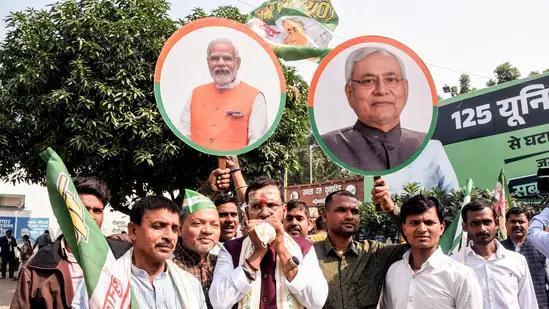
AI, Creators, and Tier-2 Cities Power India’s Startup Growth
India’s startup ecosystem has been on a steady rise, with the country now boasting the third-largest startup base globally. According to a report by Startup Genome, India has seen a 14% year-on-year growth in its startup ecosystem, with the number of startups increasing to over 50,000. This growth is attributed to a combination of factors, including the adoption of AI, omnichannel models, expansion into Tier-2 and Tier-3 cities, and the rise of creator-driven branding.
A recent report by Meta and Accenture (A&M) highlights the trends that are driving India’s startup growth. According to the report, 70% of startups in India are using Artificial Intelligence (AI) to drive their business, while 67% are adopting omnichannel models to connect with their customers. Additionally, 95% of startups are targeting smaller cities, recognizing the vast potential of the Tier-2 and Tier-3 markets.
Moreover, the report reveals that 88% of startups are partnering with influencers and creators early on in their growth journey. This trend is a significant shift from the traditional approach of relying solely on advertising and marketing campaigns to reach customers.
AI: The Game-Changer
AI is transforming the way startups operate in India. From automating tasks to improving customer engagement, AI is helping startups streamline their operations and make data-driven decisions. According to a report by Microsoft, AI adoption in India has increased by 20% in the past year, with 70% of startups using AI to drive their business.
AI is also helping startups personalize their offerings to their customers. For instance, e-commerce platforms are using AI-powered chatbots to offer personalized recommendations to customers, while fintech startups are using AI to detect fraud and improve customer authentication.
Omnichannel: The New Normal
Omnichannel models are becoming the new normal for startups in India. Omnichannel models involve providing a seamless customer experience across multiple touchpoints, including social media, mobile apps, and physical stores.
According to the Meta-A&M report, 67% of startups in India are adopting omnichannel models to connect with their customers. This shift towards omnichannel models is driven by the need to provide a consistent customer experience across multiple touchpoints.
Omnichannel models are also helping startups personalize their offerings to their customers. For instance, e-commerce platforms are using AI-powered chatbots to offer personalized recommendations to customers, while fintech startups are using AI to detect fraud and improve customer authentication.
Tier-2 and Tier-3 Cities: The Next Frontier
Tier-2 and Tier-3 cities are emerging as the next frontier for startups in India. According to the Meta-A&M report, 95% of startups are targeting smaller cities, recognizing the vast potential of these markets.
Tier-2 and Tier-3 cities offer a unique set of advantages for startups. These cities have a lower cost of living and doing business, making it easier for startups to scale. Additionally, Tier-2 and Tier-3 cities have a younger population, providing a vast pool of talented and skilled workforce.
Creator Economy: The Rise of Influencers
The creator economy is on the rise in India, with 88% of startups partnering with influencers and creators early on in their growth journey. This trend is a significant shift from the traditional approach of relying solely on advertising and marketing campaigns to reach customers.
Influencers and creators are providing startups with a unique opportunity to reach their target audience. Influencers have built a loyal following across social media platforms, and startups are recognizing the value of partnering with them to promote their products and services.
Conclusion
India’s startup ecosystem is evolving fast, driven by the adoption of AI, omnichannel models, expansion into Tier-2 and Tier-3 cities, and the rise of creator-driven branding. As the ecosystem continues to grow, startups will need to adapt to these trends to stay ahead of the competition.
By adopting AI, omnichannel models, and partnering with influencers, startups can provide a seamless customer experience, personalize their offerings, and reach their target audience. Additionally, by expanding into Tier-2 and Tier-3 cities, startups can tap into the vast potential of these markets and scale their business.
As India’s startup ecosystem continues to evolve, one thing is clear – AI, creators, and Tier-2 cities are the key drivers of growth and innovation in the country.
News Source:






